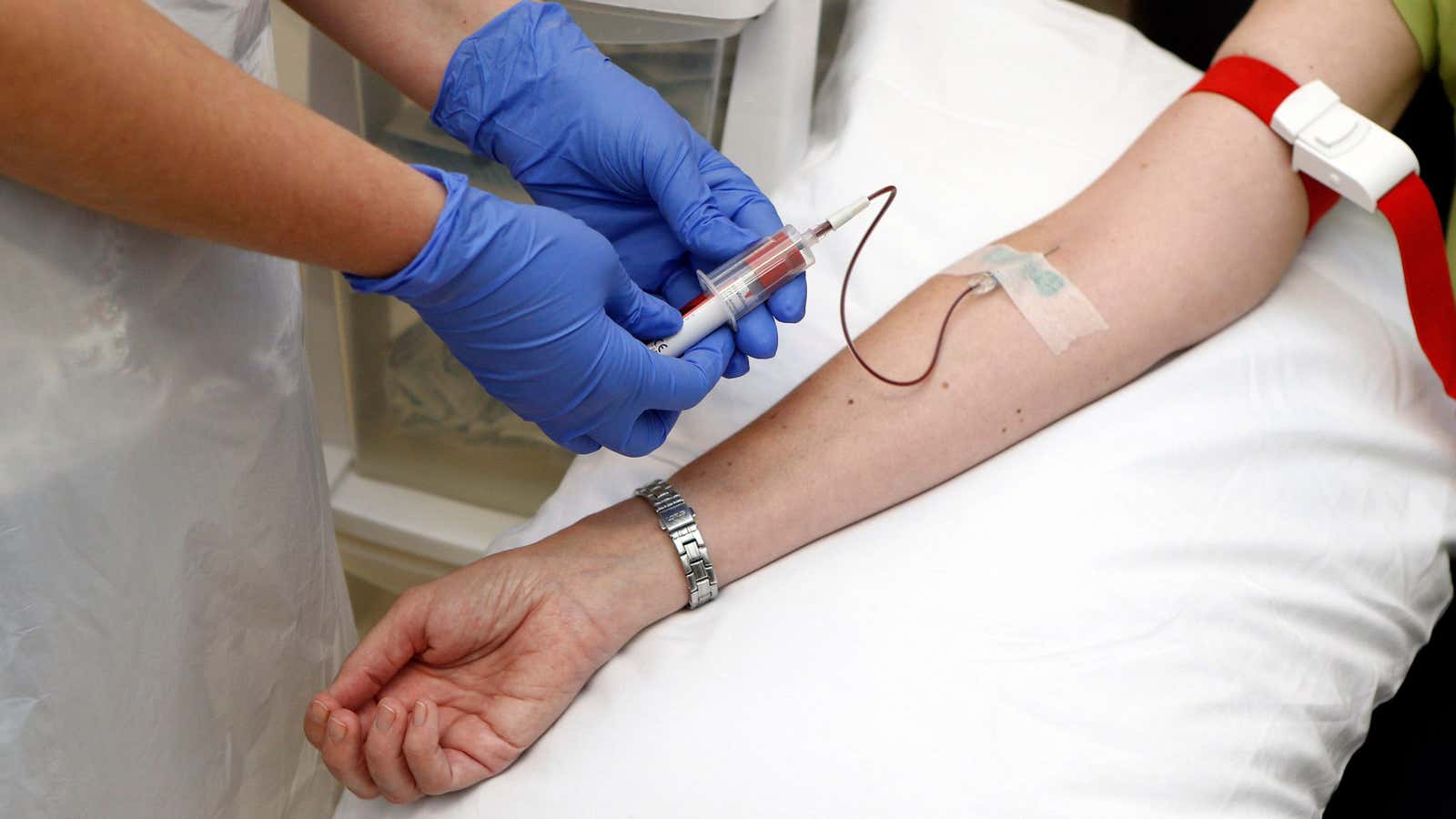Clinical trials are the lifeblood of medical research. To assess the safety and efficacy of new drugs, therapies, and treatments, scientists study patients in trials that often last for years. In both the US and EU, researchers have since 2012 been required to report their results after their trial’s completion. But a new study in the BMJ finds that a whopping 49% of the EU’s clinical trials registered since 2004 have flouted that rule.
There are many reasons scientists might not follow through on reporting their results, the most obvious being the amount of time it takes. Scientists may instead opt to spend that time writing up those results for academic journals, a move that’s much more likely to advance their career. Moreover, there’s no punishment for non-compliance; no researchers have been sanctioned for failing to file a trial report in the EU or the US.
But there could be serious consequences for patients. Failure to report results could obscure crucial information that governing agencies and doctors need to make decisions. And as scientists in many fields are grappling with replication issues, reporting results from all trials—even the ones that yielded seemingly uninteresting or difficult-to-interpret data—can help researchers sort out which medications or treatments really help patients.
Six of the seven authors on the BMJ paper are members of Oxford’s Evidence Based Medicine DataLab, which, in tandem with the new paper, launched EU Trials Tracker. The tracker is a searchable website that seeks to hold trial investigators accountable for properly reporting results. Of the 4,891 entities that have trials subject to the EU rules, 104 of them are “major sponsors,” meaning they have at least 50 trials in the works. Only 11 major sponsors have a 100% compliance rate, and all are companies. In general, lead author Ben Goldacre and his team report, corporate sponsors have a higher compliance rate (68%) than the universities, hospitals, and research institutes that conduct research (11%).
Earlier this year, the EBM DataLab launched FDAAA Trials Tracker, a similar site that tracks compliance in reporting US trials. The US fares only slightly better than the EU: FDAAA Trials Tracker reports that 59.1% of trials have reported results, and notes that the US government could collect over $620 million in fines from non-compliance.
Goldacre and his collaborators hope the paper and tracking sites will spur scientific agencies into enforcing reporting rules. Sile Lane, head of international campaigns and policy at UK charity Sense about Science, thinks there should be consequences repeat non-compliers. “Why should these institutions be allowed to run any more trials on patients?” she wrote in a statement. “Why are ethics committees giving them permissions to run more trials? Why are funders paying for them?”
